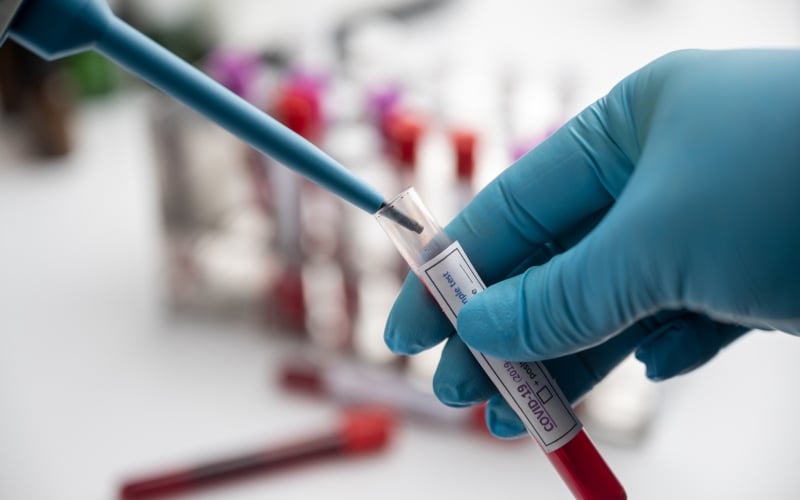 Author: Emma LoeweMarch 24, 2023
Author: Emma LoeweMarch 24, 2023 mbg Sustainability + Health DirectorBy Emma Loewembg Sustainability + Health DirectorEmma Loewe is the Senior Sustainability Editor at mindbodygreen and the author of "Return to Nature: The New Science of How Natural Landscapes Restore Us."Probiotics for women 50+How we pickedThe best probiotics for women 50+How to chooseHealth benefitsFAQImage by mbg CreativeMarch 24, 2023Our editors have independently chosen the products listed on this page. If you purchase something mentioned in this article, we may earn a small commission.
mbg Sustainability + Health DirectorBy Emma Loewembg Sustainability + Health DirectorEmma Loewe is the Senior Sustainability Editor at mindbodygreen and the author of "Return to Nature: The New Science of How Natural Landscapes Restore Us."Probiotics for women 50+How we pickedThe best probiotics for women 50+How to chooseHealth benefitsFAQImage by mbg CreativeMarch 24, 2023Our editors have independently chosen the products listed on this page. If you purchase something mentioned in this article, we may earn a small commission.As you age, your microbiome ages with you. With each passing decade, we can lose microbial diversity1 thanks to factors like age-associated stressors and immune challenges. This makes high-quality probiotics even more valuable once you hit the back half of life. Certain bacterial strains can also help support women 50+ as they navigate the side effects of perimenopause, menopause, and postmenopause.*
Here's what women over 50 should look for in a probiotic supplement and nine of the best options available.
The best probiotics for women 50+
Best for gas and bloatingmindbodygreen probiotic+Go to reviewBest for weight managementMetagenics UltraFlora ControlGo to reviewBest for vaginal healthThorne Women's Daily ProbioticGo to reviewBest for women’s urinary tract healthMegaFood Women’s Probiotic + Prebiotic Go to reviewBest for regularityOra Organic Trust Your Gut PowderGo to reviewBest for menopauseMenoLabs MenoFit®Go to reviewBest multivitamin with probioticsGarden of Life Vitamin Code 50 and Wiser Women's Multi CapsulesGo to reviewBest probiotic for menopause bellyDesigns for Health Probiotic SupremeGo to reviewBest gummy probioticRenew Life Probiotics for Women Go to reviewThe best probiotics for women 50+
Best for gas and bloating mindbodygreen probiotic+Go to review$69 on mindbodygreen$69 on mindbodygreenBest for weight management
mindbodygreen probiotic+Go to review$69 on mindbodygreen$69 on mindbodygreenBest for weight management Metagenics UltraFlora ControlGo to review$45 on Metagenics$45 on MetagenicsBest for vaginal health
Metagenics UltraFlora ControlGo to review$45 on Metagenics$45 on MetagenicsBest for vaginal health Thorne Women's Daily ProbioticGo to review$35 on Thorne$35 on ThorneBest for women’s urinary tract health
Thorne Women's Daily ProbioticGo to review$35 on Thorne$35 on ThorneBest for women’s urinary tract health MegaFood Women’s Probiotic + Prebiotic Go to review$36 on MegaFood$36 on MegaFood$46 on AmazonBest for regularity
MegaFood Women’s Probiotic + Prebiotic Go to review$36 on MegaFood$36 on MegaFood$46 on AmazonBest for regularity Ora Organic Trust Your Gut PowderGo to review$37 on Amazon$37 on AmazonBest for menopause
Ora Organic Trust Your Gut PowderGo to review$37 on Amazon$37 on AmazonBest for menopause MenoLabs MenoFit®Go to review$40 on Menolabs$40 on Menolabs$45 on WalmartBest multivitamin with probiotics
MenoLabs MenoFit®Go to review$40 on Menolabs$40 on Menolabs$45 on WalmartBest multivitamin with probiotics Garden of Life Vitamin Code 50 and Wiser Women's Multi CapsulesGo to review$59 on Amazon$59 on AmazonBest probiotic for menopause belly
Garden of Life Vitamin Code 50 and Wiser Women's Multi CapsulesGo to review$59 on Amazon$59 on AmazonBest probiotic for menopause belly Designs for Health Probiotic SupremeGo to review$91 on Amazon$91 on AmazonBest gummy probiotic
Designs for Health Probiotic SupremeGo to review$91 on Amazon$91 on AmazonBest gummy probiotic Renew Life Probiotics for Women Go to review$15 on Amazon$15 on Amazon$17 on WalmartShow More
Renew Life Probiotics for Women Go to review$15 on Amazon$15 on Amazon$17 on WalmartShow MoreShould women over 50 take probiotics?
Probiotic supplements—which help augment the microbiome with an influx of good bacteria—can be helpful at any age. However, they may be particularly effective for managing some of the hormone-driven challenges of menopause.
For example, certain probiotic strains have been associated with increased production of follicle-stimulating hormone2 (FSH). FSH stimulates the production of estrogen, and it can be helpful for balancing temperature regulation, vaginal health, and mood during menopause.*
The decline in progesterone levels during menopause can negatively affect gastrointestinal tract functioning3 and contribute to gas, bloating, and weight gain—all issues that the right probiotics can help out with4 too.*
Some strains can also support a healthy vaginal microbiome and reduce the vaginal dryness5 associated with postmenopause, according to research.*
Other science-backed benefits of probiotics for women 50+ include improved bone strength and density6 and weight management/cardiometabolic health2.* One particularly interesting study out of Korea on 63 healthy women over 65 years old found that those who took a probiotic containing Bifidobacterium bifidum BGN4 and Bifidobacterium longum BORI for 12 weeks experienced less stress and more mental flexibility7 than those who took a placebo.*
We have roughly the same number of bacteria in our body as we do human cells8, so it pays to tend to these microbes with a probiotic that's targeted for your exact needs. The key is taking bacterial strains that have been clinically studied for the benefits you're after.
To help you on your search, mindbodygreen's vice president of scientific affairs Ashley Jordan Ferira, Ph.D., RDN, identified the best probiotics on the market for women 50+ right now.
Summary
Probiotic supplements may help ease some of the difficulties of menopause by promoting gut health, vaginal balance, bone strength, cardiometabolic health, mood, and more. Regardless of menopausal status, they're a valuable tool for healthy aging.*RELATED READ: The 9 Best Probiotics For Women For Bloating, Vaginal Health & More
The best probiotics for women 50+
Best for gas and bloating: mindbodygreen probiotic+
 :view on mindbodygreen | $69
:view on mindbodygreen | $69Pros
- Helps aid digestion and ease bloat*
- Supports healthy weight*
- Contains 4 targeted, clinically studied strains for gut health
- Sustainable packaging
Cons
- Daily regimen to maximize benefits
Women aretwice as likely as men to experience bloating and struggle with regularity, and hormonal changes after age 50 only make matters worse.
Enter: mindbodygreen's probiotic+ supplement, which contains four probiotic strains specifically studied for gut health and comfort. In this probiotic, you'll find clinically relevant amounts of B. lactis Bi-07 to ease bloating and promote comfort, B. lactis B420 to help with healthy weight management, B. lactis HN019 to support digestion and regularity (while reducing gas), and L. acidophilus NCFM to encourage healthy bowel movements. It's a one-stop shop for healthy, comfortable digestion. Many reviewers notice a real difference within a few weeks of taking the product. While probiotic+ has proven helpful for women over 50, it's suitable for younger women and men as well.*
Save money when you sign up for a mindbodygreen probiotic+ subscription ($69/month), or buy once for $80. New customers save 10% on their first order with promo code MBG10.
Best for weight management: Metagenics UltraFlora Control
 :view on Metagenics | $45
:view on Metagenics | $45Pros
- Contains clinically studied strain for weight management*
- Clean formula
Con
- Single-strain formula may be a con to some
Many women experience weight fluctuations as they age and during perimenopause/menopause. When paired with a healthy diet and exercise, the right probiotics can help support a healthy body weight.*
This single-strain probiotic from legacy brand Metagenics delivers 10 billion CFUs of Bifidobacterium lactis B420: a strain that supports a healthy weight through reductions in caloric intake, abdominal fat mass, and waist circumference. It's far and away the most rigorously studied strain for weight management.
Many reviewers have found that this supplement gets to work almost immediately, and it helps with other markers of gastrointestinal health (think: more regularity and less gas), too.*
Advertisement
This ad is displayed using third party content and we do not control its accessibility features.Best for vaginal health: Thorne Women's Daily Probiotic
 :view on Thorne | $35
:view on Thorne | $35Pros
- Affordable
- Contains strains studied for vaginal health*
Cons
- Plastic packaging
- Some strains are in a proprietary blend
More than half of postmenopausal women experience occasional vaginal dryness. Research has shown that when compared with estrogen alone, estrogen combined with probiotics can significantly improve key vaginal health scores.
Lactobacillus is the bacterial genus that plays a protective role along the microbiome of the vaginal canal and urinary tract. This blend from Thorne includes eight strains of Lactobacillus bacteria—most notably L. acidophilus UALA-01, which has been shown to promote a balanced vaginal pH, and L. reuteri RC-14, which has been shown to help protect against urogenital tract concerns.
Though it does contain proprietary blends, which aren’t ideal from a transparency standpoint, Thorne's supplement contains thoughtful strains that are targeted for vaginal health.*
Best for women’s urinary tract health: MegaFood Women’s Probiotic + Prebiotic
 :view on MegaFood | $36:view on Amazon | $46
:view on MegaFood | $36:view on Amazon | $46Pros
- B Corp certified
- Added prebiotics
- Contains clinically studied strains for vaginal and urinary tract health*
Cons
- Needs to be taken with a meal
- Needs to be stored in the fridge or freezer
Hormonal changes can also cause changes in the lining of the vagina and urinary tract that make them more susceptible to immune challenges. Taking MegaFood Women’s Probiotic + Prebiotic can help re-invigorate the urinary tract with 14 healthy bacterial strains, most notably Lactobacillus rhamnosus HN001 and Lactobacillus plantarum LP115.
These have been shown in preclinical studies to help protect against urinary tract health concerns, and they might have a beneficial impact on mood too, as HN001 has been studied for combatting anxiousness and mood support during the postpartum period. The probiotic also contains prebiotics (from beet, burdock, and dandelion roots) to feed these beneficial bacteria, and the added cranberry for further protection against harmful bacteria is a nice touch.*
You can feel good buying from MegaFood, a certified B Corp for its commitment to sustainability. Just note that this product should be taken with a meal and stored in the fridge or freezer upon arrival.
Advertisement
This ad is displayed using third party content and we do not control its accessibility features.Best for regularity: Ora Organic Trust Your Gut Powder
 :view on Amazon | $37
:view on Amazon | $37Pros
- No added sugar
- Contains prebiotics
Cons
- Powder delivery not suitable for everyone
If you prefer a non-capsule option, this probiotic from Ora comes in a flavored powder that can be mixed with water or blended into smoothies, oatmeal, yogurt, etc. One scoop delivers seven bacterial strains in the Lactobacillus and Bifidobacterium genus that are geared toward digestive health, mood, and a healthy inflammatory response (though Ora recommends starting with half a scoop a day to get used to the product). As far as powders go, these are super clean and get their "apple raspberry" and "lavender lemonade" flavors from natural, organic sources with no added sugar.
This option may be particularly beneficial for those who struggle with regularity since its strains have been studied for both slowing things down and getting things moving. It also contains prebiotic fiber from organic Jerusalem artichokes for added gut support.*
Best for menopause: MenoLabs MenoFit®
 :view on Menolabs | $40:view on Walmart | $45
:view on Menolabs | $40:view on Walmart | $45Pros
- Added nutrients for menopausal health*
- Accompanying app for health tracking
Cons
- Contains dairy (milk)
This product gets rave reviews for its ability to ease menopausal lifestyle challenges and help with temperature regulation, mental clarity, and mood. It contains probiotic strains that have been studied for weight management and a healthy inflammatory response, and it has a suite of botanicals geared toward menopausal women. Magnolia bark extract helps support sleep quality; red clover helps promote hormonal balance; and chaste berry extract offers mood support and reduces anxiousness. The accompanying MenoLife app also lets users keep track of how the non-hormonal supplement is working for them over time.*
Advertisement
This ad is displayed using third party content and we do not control its accessibility features.Best multivitamin with probiotics: Garden of Life Vitamin Code 50 and Wiser Women's Multi Capsules
 :view on Amazon | $59
:view on Amazon | $59Pros
- Contains added fruit and veggies blend
- Contains essential vitamins and minerals
Cons
- 4 capsules daily
- Low CFU count
Looking for a probiotic that can also help meet your nutritional needs? This option from Garden of Life contains a modest amount of Lactobacillus bulgaricus and Lactobacillus plantarum for gut health, more than 20 powdered organically grown fruits and vegetables, and a well-rounded array of essential vitamins and minerals. It's essentially a multivitamin, a fruit and veggie powder, and a probiotic in one—hence why each serving is a hefty four capsules. Reviewers note that even though taking so many capsules can be a pain, the product helps them feel more energized, focused, and strong.*
Best probiotic for menopause belly: Designs for Health Probiotic Supreme
 :view on Amazon | $91
:view on Amazon | $91Pros
- Contains clinically studied strains for healthy body composition*
Cons
- Expensive
- Needs to be refrigerated
Another fun side effect of menopause is the accumulation of body fat in the lower belly and torso, leading to what some call "menopause belly." This probiotic by Designs for Health can help give you a leg up on a healthy and comfortable midsection with strains that have been studied to lower fat mass (B. Breve B-3), and it also has strains for immunity (L. Acidophilus La-14) and urinary tract health (L. Casei Lc-11).*
It's designed as a slow-release formula to help ensure more of its beneficial probiotics actually reach the digestive tract. One capsule a day is all you need, but the product should be refrigerated to maintain quality.
Advertisement
This ad is displayed using third party content and we do not control its accessibility features.Best gummy probiotic: Renew Life Probiotics for Women
 :view on Amazon | $15:view on Walmart | $17
:view on Amazon | $15:view on Walmart | $17Pros
- Contains added prebiotics and cranberry
- No artificial flavors or synthetic colors
Cons
- Added sugars
- Low CFU count
Got a sweet tooth? Probiotic gummies are here for you. This option from Renew Life packs in two strands, B. coagulans SNZ 1969for digestive regularity and B. subtilis DE111, which has been studied for healthy cholesterol levels, plus prebiotics and cranberry powder for urinary health.*
It's a relatively healthy option as far as gummies go, with no artificial flavors or synthetic colors, though each serving does contain 3 grams of added sugar. At 2 billion CFUs per serving, it also doesn't deliver as many good bugs as many other picks on the list.
How to choose
When deciding on the right probiotic for you, you'll first want to consider your unique needs. Eager to ease bloat and gas? Look for a probiotic that uses strains specifically for gut health. Working on your weight management? There are strains that have been studied for that, too. Ideally, the company you're buying from will be transparent about the exact bacteria in its product (down to the strain) so you can know exactly what you're putting in your body and why.
As you're shopping, take note of the number of colony-forming units (CFUs) in each product. While more CFUs aren't necessarily better, you'll want to make sure each strain is present in a clinically relevant amount—i.e., one that's been shown to be beneficial in scientific testing. This can get confusing, so we broke down everything you need to know about probiotic dosing here.
Finally, you'll want to choose a probiotic that is easy to incorporate into your life. If you're not great about taking pills, a gummy option might be more suitable (just look out for added sugar). If you always forget to take supplements with meals, opt for a probiotic that can be consumed without food.
Pair your new probiotic with a gut-healthy diet and regular physical activity9 to protect your diverse microbiome as you age—and support longevity and health span in the process10.
Health benefits
These are just a few of the probiotic benefits that may be of special interest to women over 50:*
- Digestive health and comfort11
- Vaginal health and comfort12
- Heart health and cholesterol management13
- Skin health and appearance14
- Immune health15
- Regularity16
- Steadier mood7
The takeaway.
It's never too late to introduce a high-quality probiotic into your routine and get the good bugs on your side. Probiotics can help women over 50 support their weight, digestive health, heart health, vaginal and urinary tract health, and more.* But they don't work in isolation. Be sure to pair them with other microbiome-supporting habits like eating a nutrient-dense diet, managing stress, and getting plenty of exercise.
If you are pregnant, breastfeeding, or taking medications, consult with your doctor before starting a supplement routine. It is always optimal to consult with a health care provider when considering what supplements are right for you.










